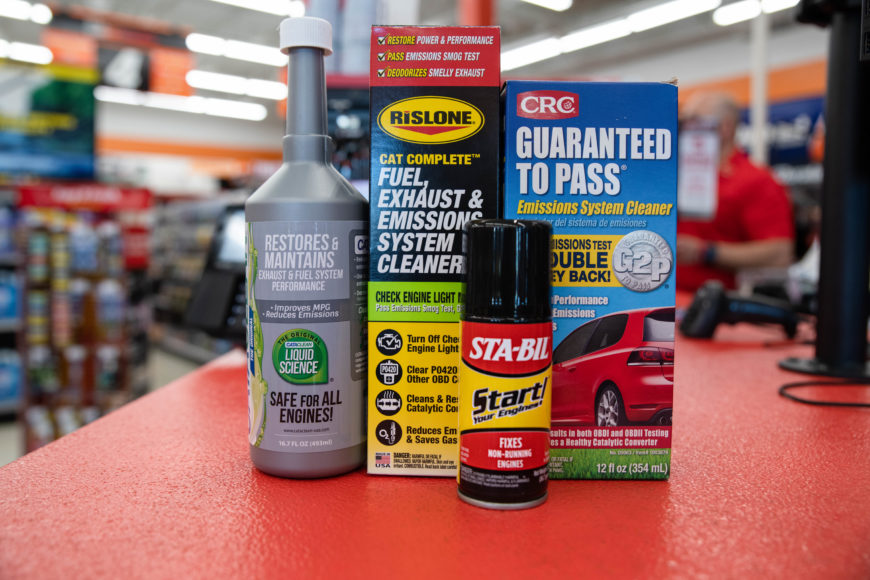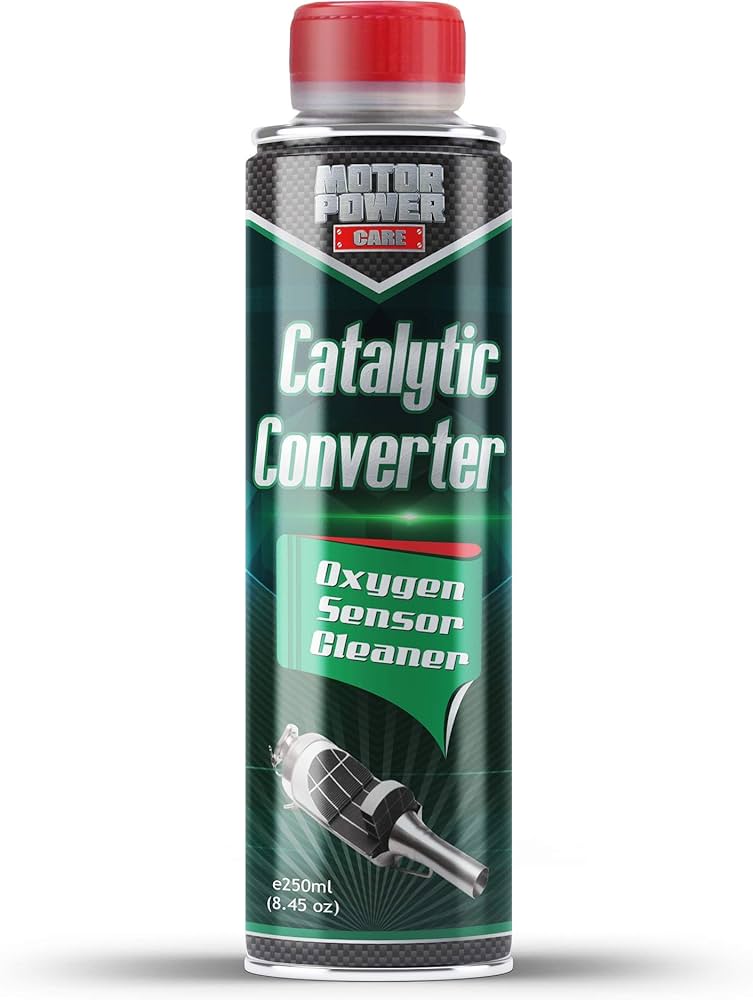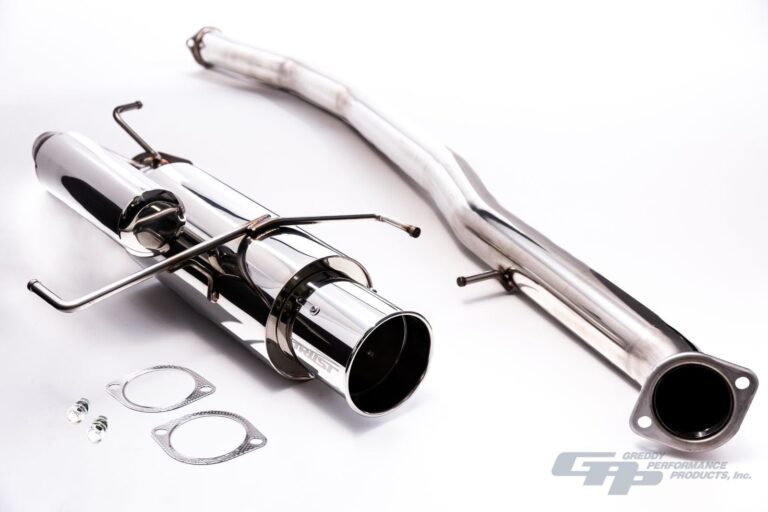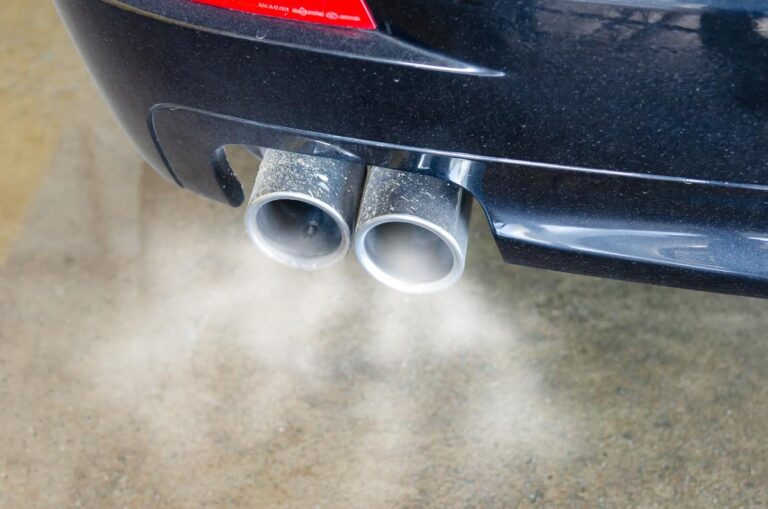Can You Use Aftermarket Catalytic Converter : Boost Performance and Efficiency Now!
Yes, you can use an aftermarket catalytic converter as a replacement for your vehicle’s original catalytic converter. Aftermarket catalytic converters are designed to meet the same emissions standards and perform the same function as the original equipment manufacturer (OEM) converters.
An aftermarket catalytic converter can be a cost-effective alternative to purchasing an OEM converter from the dealership. These converters are often available at a lower price without sacrificing quality. However, it is important to ensure that the aftermarket catalytic converter complies with the emissions regulations in your area.
Additionally, professional installation is recommended to ensure proper fitment and optimal performance. We will explore the benefits and considerations associated with using aftermarket catalytic converters in your vehicle.
Increased Performance And Efficiency
Catalytic converters play a crucial role in the functioning of a vehicle’s exhaust system. They are responsible for reducing harmful emissions, but they can also impact performance and efficiency. Aftermarket catalytic converters have gained popularity among car enthusiasts due to their potential benefits.
One of the primary advantages of using an aftermarket catalytic converter is the potential for increased performance. These converters are designed to provide enhanced exhaust flow, allowing gases to exit the system more efficiently. This improved flow can result in improved horsepower and torque, giving your vehicle a boost in overall performance.
In addition to increased performance, aftermarket catalytic converters can also contribute to optimized fuel efficiency. The improved exhaust flow allows the engine to breathe more freely, reducing backpressure and allowing for better combustion. This can result in improved fuel economy, saving you money at the pump.
When considering an aftermarket catalytic converter, it is important to ensure that it meets all necessary emissions regulations. It’s also a good idea to consult with a professional or experienced technician to ensure compatibility with your specific vehicle.
Cost-effectiveness
Affordable alternative to OEM converters: Aftermarket catalytic converters are a cost-effective solution for vehicle owners. They offer more options for different budgets and can potentially save on repairs and maintenance costs. These converters are designed to perform at the same level as original equipment manufacturer (OEM) converters, but at a fraction of the price, making them a popular choice among car owners.
Environmental Friendliness
Environmental Friendliness
A common concern when it comes to using aftermarket catalytic converters is their compliance with emission standards. However, it is important to note that not all aftermarket catalytic converters are created equal. By choosing a reputable brand and ensuring that the converter meets the necessary certification requirements, you can be confident that it will effectively reduce harmful pollutants.
Using an aftermarket catalytic converter can have a positive impact on air quality. These converters are designed to efficiently convert harmful emissions into less harmful substances, thus reducing the amount of pollutants released into the atmosphere. With stricter emission standards being enforced worldwide, the use of aftermarket catalytic converters that meet these standards can help contribute to a cleaner environment.
Compatibility With Vehicle Make And Model
Aftermarket catalytic converters can be a viable option for certain vehicles. When researching compatibility with your specific make and model, it is crucial to consider your vehicle’s emission system. Each vehicle has its own unique emission requirements, and the catalytic converter must meet these standards to function effectively. It is recommended to consult with a professional or refer to the manufacturer’s guidelines to ensure the aftermarket converter is compatible with your vehicle. Additionally, environmental regulations play a significant role when choosing a catalytic converter. Adhering to these regulations is essential to avoid legal issues and maintain a clean and sustainable environment.
Quality And Durability
Quality and Durability
Evaluating materials used and craftsmanship
When considering an aftermarket catalytic converter, it’s important to evaluate the materials used and the craftsmanship involved in its production. Look for robust materials like stainless steel or heavy-duty metals that can withstand high temperatures and corrosive gases. This ensures the converter’s longevity and performance.
Reading customer reviews and ratings is a great way to gauge the quality and durability of a particular aftermarket catalytic converter. Pay attention to feedback regarding its longevity, effectiveness in reducing emissions, and overall customer satisfaction. Positive reviews and high ratings can indicate a reliable and durable product.
Checking for warranty options is also important. Reputable manufacturers often provide warranties that cover defects or malfunctioning within a specified period. A warranty assures you of the converter’s quality and the manufacturer’s confidence in their product.
Legal Compliance
Using an aftermarket catalytic converter can be a cost-effective option for vehicle owners. However, it is important to ensure legal compliance by familiarizing yourself with local and state regulations. Before purchasing an aftermarket converter, confirm that it meets the required emission standards. This includes checking if it is certified by the appropriate regulatory authorities. Failure to comply with these regulations can result in potential fines and penalties.
When using an aftermarket catalytic converter, it is essential to avoid potential legal consequences. Familiarizing yourself with the local and state regulations will help you understand the specific requirements you need to follow. By ensuring that the aftermarket converter meets emission standards, you can confidently use it without worrying about violating any laws. Remember that it is your responsibility as a vehicle owner to comply with these regulations to protect the environment and avoid any legal issues.
Professional Installation
Aftermarket catalytic converters can be a viable option for replacing a worn-out or faulty converter in your vehicle. However, it is crucial to consider professional installation to ensure optimal performance and compliance with emissions standards. Hiring a certified mechanic or exhaust specialist is recommended for this task. They have the expertise and knowledge to correctly install the aftermarket catalytic converter, ensuring proper fitment and alignment with your vehicle’s exhaust system. They can also help avoid common installation mistakes that could lead to leaks or problems down the line. By entrusting the installation to a professional, you can have peace of mind knowing that your aftermarket catalytic converter is installed correctly and will function properly, helping to reduce emissions and maintain your vehicle’s performance.

Credit: www.autozone.com
Regular Inspection And Maintenance
Regular Inspection and Maintenance
A crucial aspect of maintaining an aftermarket catalytic converter is to conduct regular inspections and perform necessary maintenance. This ensures optimal performance and longevity of the converter.
Monitoring for any signs of damage or malfunction
It is essential to monitor the aftermarket catalytic converter for any signs of damage or malfunction. Keep an eye out for unusual noises, vibrations, or a decline in engine performance, as these could be indicators of a faulty converter.
Checking for leaks and cracks in the converter
Regularly check the converter for any leaks or cracks. Inspecting the exhaust system and converter thoroughly can help you identify any issues before they worsen. Pay attention to the connections, welds, and overall condition of the converter.
Replacing worn-out components when necessary
If you notice any wear and tear on specific components of the aftermarket catalytic converter, consider replacing them promptly. This may include damaged or worn-out catalysts, oxygen sensors, or heat shields. Opting for quality replacements can ensure the converter’s effectiveness.
Frequently Asked Questions For Can You Use Aftermarket Catalytic Converter
What Is The Difference Between Aftermarket And Regular Catalytic Converters?
Aftermarket catalytic converters are made by third-party manufacturers and are often less expensive but may not meet emissions standards. Regular catalytic converters are made by the original equipment manufacturer and tend to be more expensive but meet all required emissions standards.
Is It Ok To Use A Used Catalytic Converter?
Yes, it is generally safe to use a used catalytic converter as long as it is in good condition and compatible with your vehicle. However, it’s important to ensure that the converter meets the emission standards set by your country or state.
It’s always recommended to consult with a professional mechanic before making any replacement decisions.
Can You Put Any Catalytic Converter?
It is important to select the appropriate catalytic converter for your specific vehicle.
Can You Use An Aftermarket Catalytic Converter?
Yes, you can use an aftermarket catalytic converter as long as it meets the necessary emissions standards and is compatible with your vehicle’s make and model. However, it’s important to check local regulations and ensure proper installation for optimal performance.
Conclusion
Using an aftermarket catalytic converter can be a suitable option for some car owners, offering cost savings and potential performance improvements. However, it is important to ensure that the aftermarket converter meets the necessary emissions standards and is compatible with your vehicle’s make and model.
Consulting with a professional mechanic and conducting thorough research can help you make an informed decision. By keeping these factors in mind, you can weigh the pros and cons before deciding on the best catalytic converter for your car.








